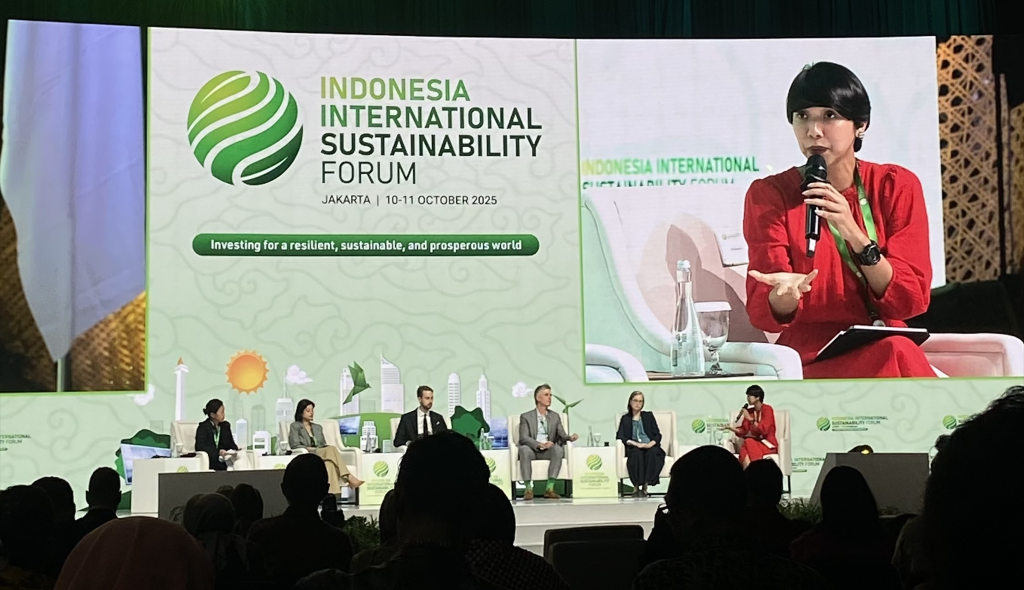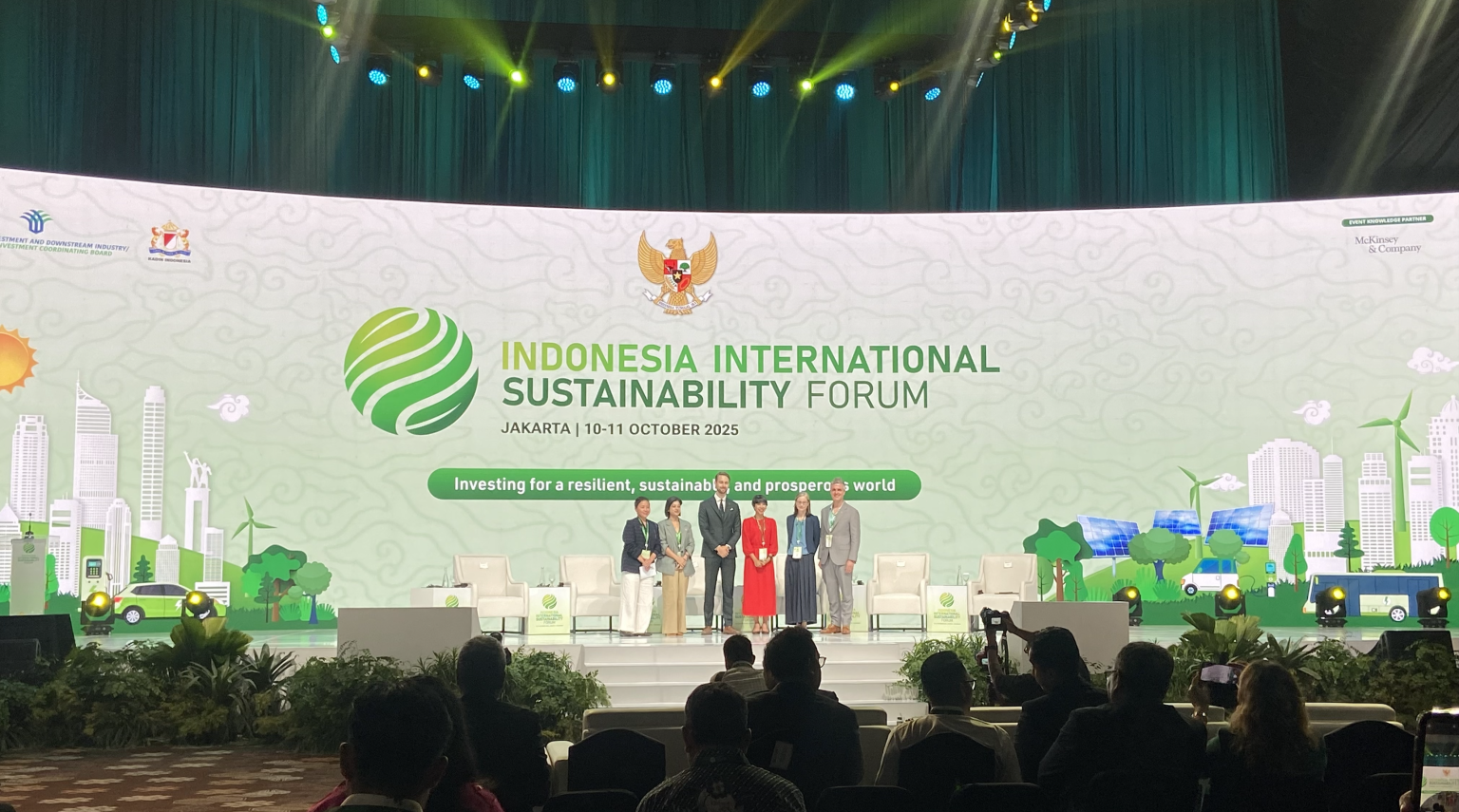Nature teaches us how to lead with resilience. Its cycles, diversity, and adaptive systems offer a model for smart leadership that is flexible, relational, and regenerative. A forest weathers storms through deep roots and networks; a healthy reef recovers by working with disturbance. In the same way, leaders can learn from nature’s example to navigate complexity with empathy and systemic awareness. By treating the environment not as an external resource but as a partner in progress, we build trust and resilience. When nature’s value is woven into strategy, and biodiversity is treated as a living foundation rather than a side concern, economies grow with greater balance, inclusion, and long-term strength.
The session “Unlocking Nature-Based Solutions: Sustainable Utilization of Land and Sea Resources” at the Indonesia International Sustainability Forum (ISF) 2025 brought forward a quiet but powerful reminder: Nature-Based Solutions (NbS) are less about fixing nature and more about reshaping how we relate to each other, ecosystems, and the systems we design.
The Disconnect Between Economy and Ecology
Helge Muenkel of DBS shared how financial institutions are starting to assess their entire financing portfolios to understand dependencies and impacts on nature. Rather than treating nature as a checklist item, this approach reflects a deeper shift toward ecosystem-aware decision-making. In Helge’s words, “Integration is indeed a key buzzword in the green growth concept.”
For Indonesia, with its mineral resources critical for the energy transition, Helge emphasized a holistic perspective: meeting mineral needs must be done in a way that respects ecological boundaries. This framing aligns with the belief that a responsible bioeconomy cannot thrive without ecosystem integrity.
When Business Follows Nature’s Logic
Pallavi Kalita, Asia Lead of Business for Nature, underscored the importance of seeing nature as a strategic priority, not just as part of CSR efforts. She called for meaningful business-government dialogue to integrate biodiversity into development planning, urging companies to act with commitment and transparency.
In her framework, four actions matter: (1) assess nature-related risks and dependencies, (2) commit to science-based targets, (3) transform business operations and advocate policy ambition, and (4) disclose material nature-related information.
On the ocean side of the conversation, Jan Yoshioka from Conservation International highlighted Indonesia’s global significance: 20% of the world’s mangroves and 17% of blue carbon potential. He pointed to climate-smart shrimp farming as one example, a collaboration between Conservation International, Conservation Indonesia, and the startup JALA. This model combines technological intensification in shrimp farming with active mangrove restoration. Through these efforts, Indonesia positions itself not just as a supplier of raw materials but as a center for innovation in the blue economy.
Amy Merrill, from the Integrity Council for the Voluntary Carbon Market (ICVCM), reinforced the idea that real investment flows when trust is built from the ground up. She stressed that carbon markets become viable when they are inclusive, transparent, and governed by strong, community-informed systems.
Her insight: “Trust is built from the bottom up, from communities to global systems.”
Bjorn Fonden from IETA echoed this, calling for clear, operational regulations in Indonesia that align with international carbon frameworks.
He outlined three priorities: unlocking domestic demand through carbon pricing, strengthening voluntary carbon markets, and aligning with Article 6 of the Paris Agreement. But he also pointed out that none of this would matter without fair benefit-sharing for local and Indigenous communities.

Rooted Leadership for a Regenerative Future
Taken together, these insights highlight a path forward that resonates deeply with BLESS’s values. Leadership in the context of NbS calls for more than technical capacity; it asks for leaders who can hold space for complexity, build bridges across sectors, and act from a place of empathy and ecological awareness.
In the words of Gita Syahrani, Executive Director and Founder of BLESS Indonesia Foundation,
“Nature should not be considered a bonus or co-benefit, but the core of all the solutions we’re trying to make, whether the color is blue or green. Opportunities for integrating multi-stakeholders into the conversation from the start allow you to build trust while maintaining structure. And weaving connectivity between working at scale and maintaining integrity benefits us all and should be the priority.”
What emerged at ISF 2025 was not a checklist of solutions, but a pattern that links people to place, systems to stories, and ambition to care. Nature-Based Solutions call for leadership that is not extractive, but attentive. BLESS carries this vision forward by nurturing leaders who understand that lasting transformation grows through relationship, rhythm, and rootedness.



